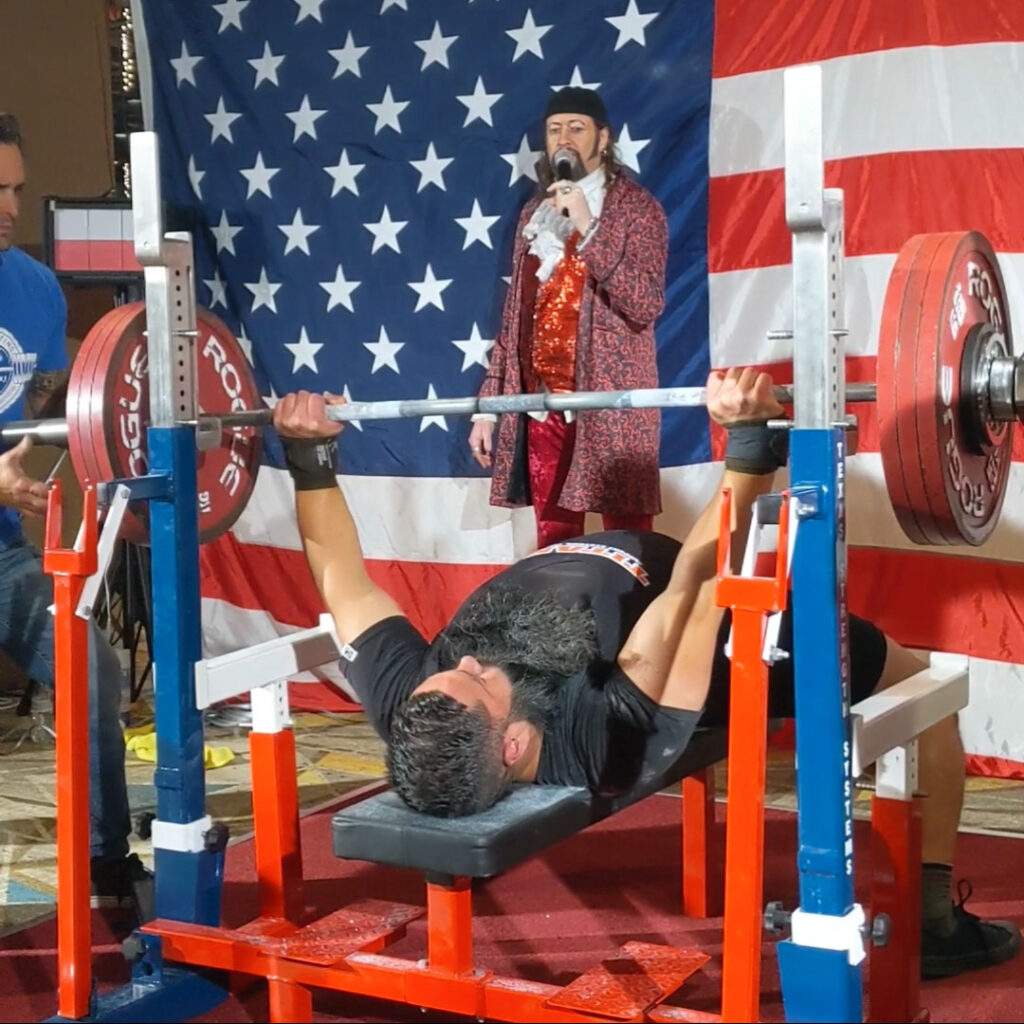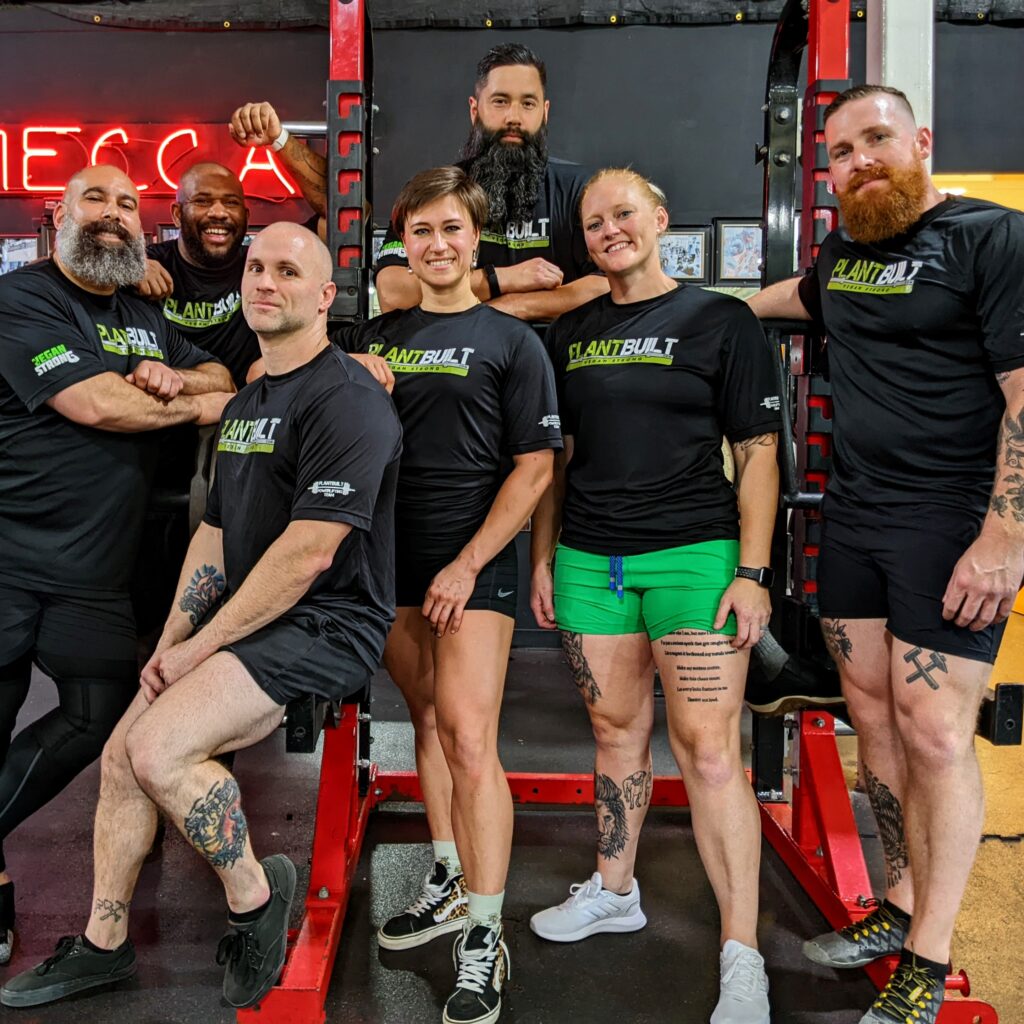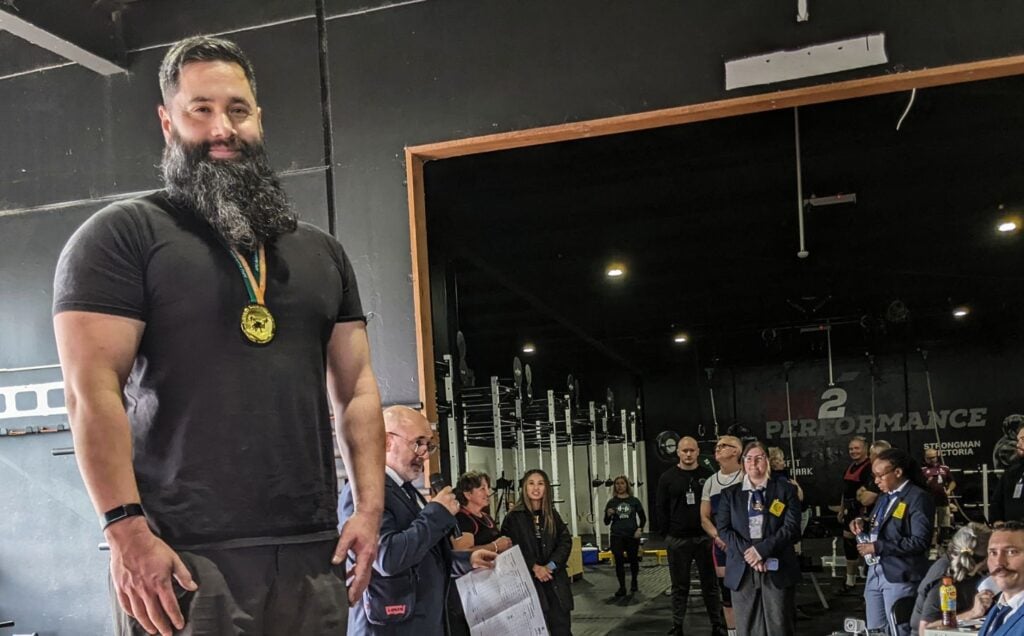There’s a common stereotype that successful athletes subsist on nothing but rare meat and raw eggs. But there’s an ever-growing list of vegans challenging everything we thought we knew about optimal sport diets.
One of these is Noah Hannibal, an Australian powerlifter who holds two national bench press records. He also competed in Mr America in an all-vegan team called Vegan Strong Plantbuilt, taking home a gold medal in the sport.
Hannibal has been vegan since 1991, and claims to have never eaten meat in his life. He made the switch from vegetarianism after learning about the dairy and egg industries aged 15.
He decided to pursue strength training in the mid-90s after a bodybuilder he knew was mocking vegans for being “weak.” Hannibal challenged him to an arm wrestle, and spent six months training before “smashing his hand on the table.”
Hannibal spoke to Plant Based News (PBN) about his career, breaking down stereotypes, and the challenges he’s faced along the way.

Overcoming misconceptions about veganism
A well-planned plant-based diet has been shown by numerous studies to be optimal for human health. But there remains a common misconception that vegans are weak, and generally less fit than meat-eaters.
“When I first got into powerlifting, a national coach told me to go and eat a steak and come back once I’d eaten it,” he tells PBN. “And then I just started lifting and competing and doing well.”
This misconception is largely due to the fact that many people mistakenly believe that protein only comes from meat. This is despite the fact that protein deficiency in veganism is exceptionally rare. Numerous medical professionals have stated that fiber deficiency among meat eaters is the real issue.
According to plant-based physician Michael Greger, it is very unlikely that the average vegan will be protein deficient if they eat enough calories in a day.
Of course, athletes generally need more than the average vegan. But this is perfectly easy to maintain on a plant-based diet, Hannibal says. The bodybuilder aims to eat 200g a day, which he gets through foods like tofu, seitan, tempeh, and protein shakes.

Veganism has not only shown to be an acceptable diet for athletes, but also optimal as well.
According to a 2021 study by the University of Berkeley, a plant-based diet can “help athletes improve their performance by decreasing weight, creating leaner bodies, and improving stamina.”
A separate study looked into whether a plant-based diet was detrimental to endurance and muscle strength. It found that vegans and meat-eaters had comparable physical activity levels, body mass index, percent body fat, lean body mass, and muscle strength. But it also discovered that vegans had significantly higher estimated VO2 max (the amount of oxygen the body can utilize during exercise), and submaximal endurance time to exhaustion.
Smashing records
Hannibal won his two bench pressing records in national drug-tested federations in Australia and America.
One of the reasons he takes part in drug-tested competitions is because vegan athletes have often been accused of using steroids by competitors. Some people simply can’t believe anyone is able to compete on that level while eating a plant-based diet.
Because of this, Hannibal, along with a number of other vegan athletes, has been accused of using fake weights or photoshopping pictures.
“There’s always an excuse when people see a strong vegan,” he tells PBN. “But no one can argue with the national records. They’re just a good thing to have to show that you can be strong on a vegan diet.”
The future of vegan athleticism
Hannibal competed alongside 20 other vegan athletes in the world’s largest vegan team in Mr America in Atlantic City in October. The team scored a total of 18 medals: eight first place, five second place and five third place. The team battled against mostly non-vegan athletes in bodybuilding, powerlifting, kettlebell sport, and CrossFit.
Hannibal believes that the misconceptions surrounding veganism and strength are changing, and that “more and more” people are becoming open to the idea.
Vegan athleticism, he says, is a “good form of activism,” as it “opens minds and breaks down stereotypes that you can’t gain strength as a vegan.”






